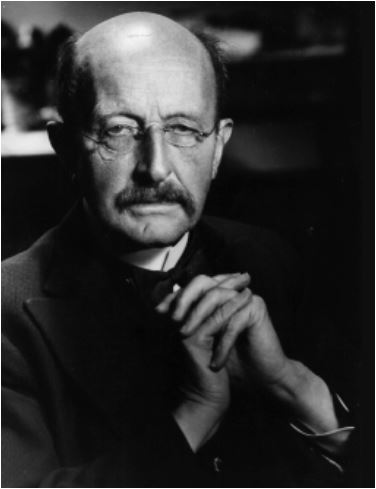German physicist Max Planck earned the Nobel Prize in Physics in 1918 for his groundbreaking work on quantum theory. Planck’s research revolutionized our understanding of energy and radiation, laying the foundation for the development of modern physics. In this article, we will explore the reasons behind Max Planck’s Nobel Prize recognition and the significance of his contributions.

Born on April 23, 1858, in Kiel, Germany, Max Planck embarked on a scientific journey that would reshape the field of physics. His most notable achievement came in 1900 when he introduced the concept of energy quantization, which marked the birth of quantum theory.
At the time, scientists were grappling with the problem of black-body radiation, the emission of electromagnetic radiation from an object at thermal equilibrium. Planck’s innovative insight was to propose that energy is not continuous but is instead quantized, existing in discrete packets called “quanta.” He formulated a mathematical expression, known as Planck’s constant, which described the relationship between energy and frequency of radiation.
Planck’s concept of energy quantization revolutionized the understanding of energy at the atomic and subatomic levels. It laid the foundation for the development of quantum mechanics, a branch of physics that explains the behavior of particles and radiation on a microscopic scale. Planck’s work not only solved the problem of black-body radiation but also paved the way for groundbreaking advancements in physics in the years to come.
The Nobel Prize in Physics was awarded to Max Planck in 1918 in recognition of his foundational contributions to the field of quantum theory. The Royal Swedish Academy of Sciences acknowledged the significance of his energy quantization hypothesis and the profound impact it had on the understanding of energy and radiation. Planck’s work laid the groundwork for subsequent research by renowned physicists, including Albert Einstein, Niels Bohr, and Werner Heisenberg.
Planck’s discoveries revolutionized our understanding of the microscopic world and challenged long-established classical physics theories. His insights into energy quantization and the development of quantum theory opened up new avenues of scientific inquiry, with implications spanning multiple disciplines. Quantum mechanics is now an integral part of modern physics, forming the basis for technological advancements in fields such as electronics, telecommunications, and quantum computing.
Beyond his groundbreaking scientific contributions, Max Planck’s leadership and mentorship shaped the future of physics. He mentored a generation of scientists and played a crucial role in fostering the development of quantum mechanics as a field of study. His dedication to scientific progress and his commitment to advancing the frontiers of knowledge earned him admiration and respect among his peers and successors.
In conclusion, Max Planck’s revolutionary work on energy quantization and the development of quantum theory earned him the Nobel Prize in Physics in 1918. His concept of energy quantization laid the foundation for quantum mechanics and transformed our understanding of energy and radiation. Planck’s groundbreaking insights continue to shape modern physics, with far-reaching implications for scientific and technological advancements. His contributions to the field of physics indeed secure his place as one of the most influential physicists of the 20th century.




